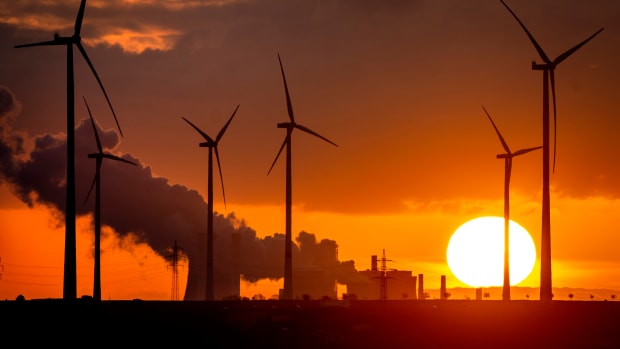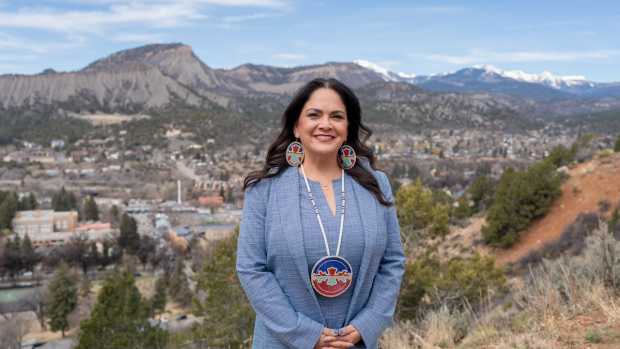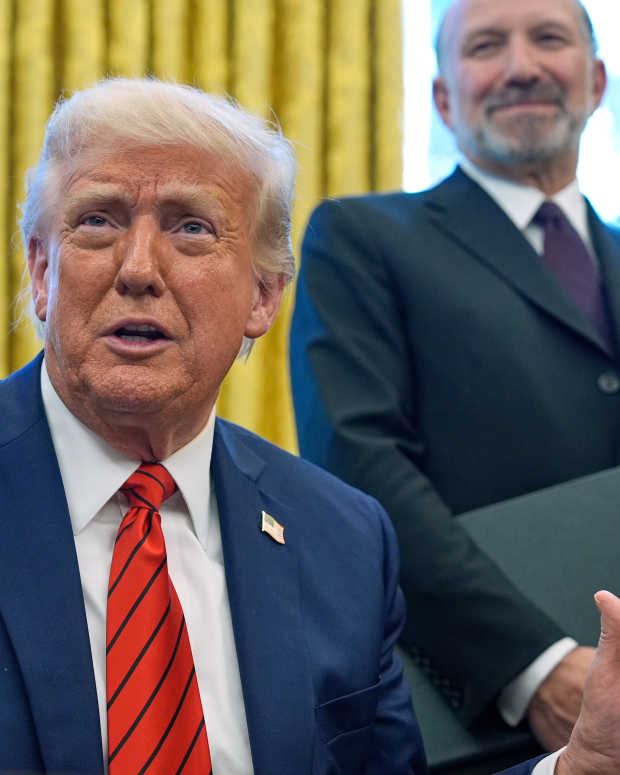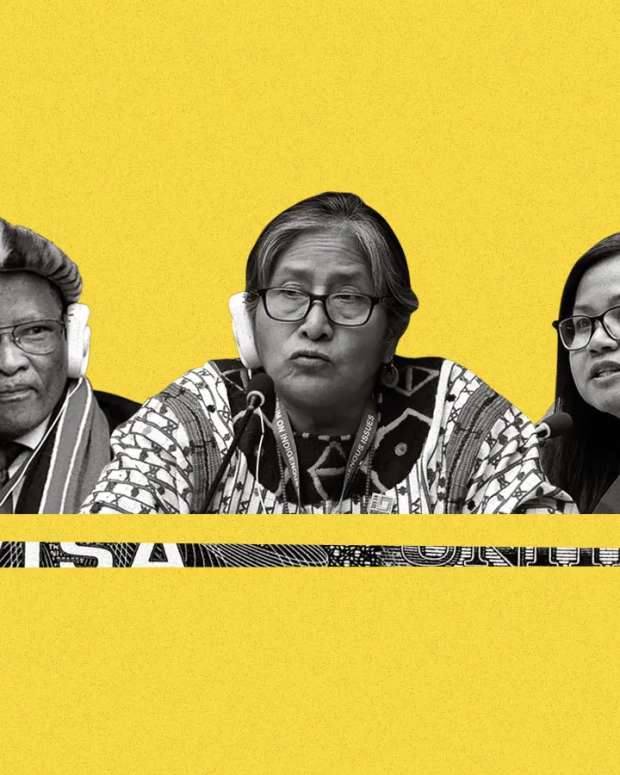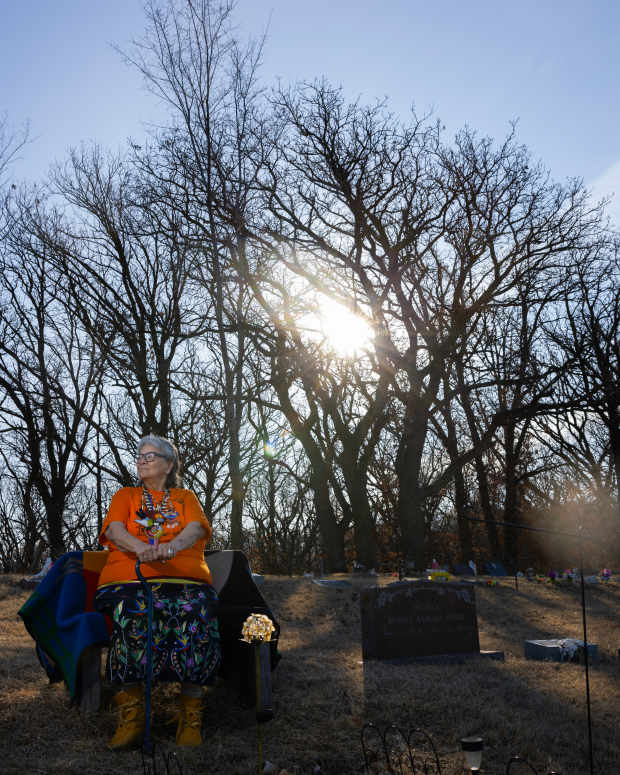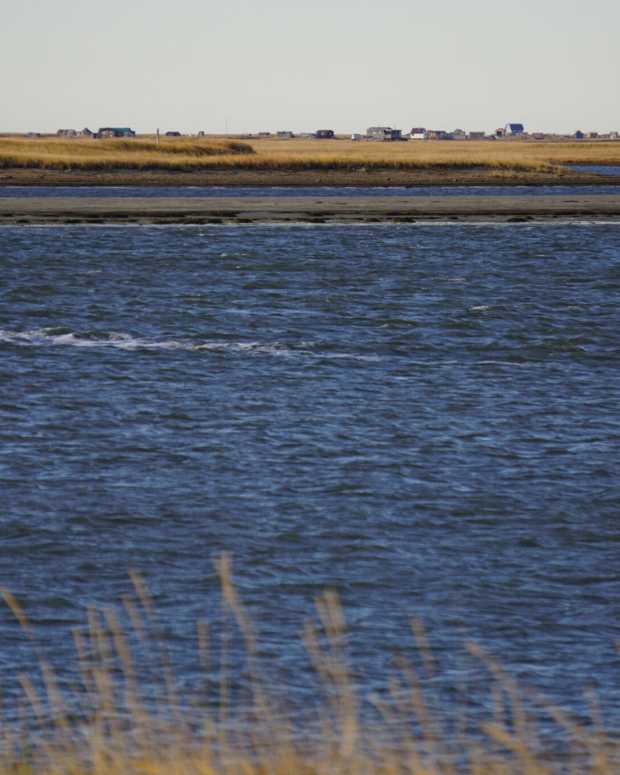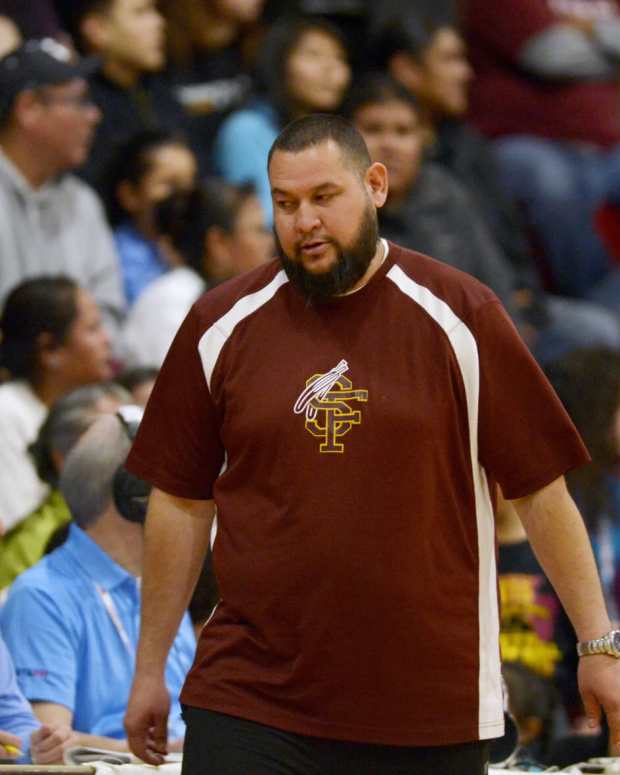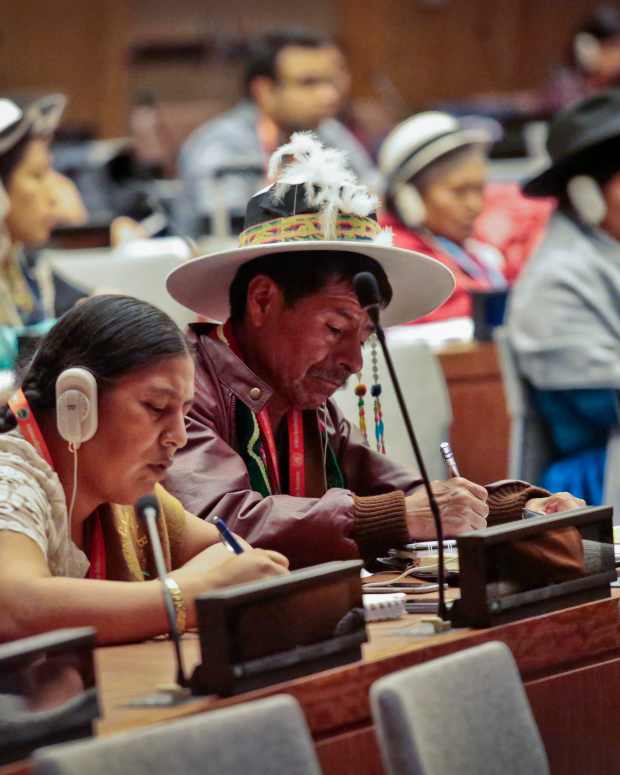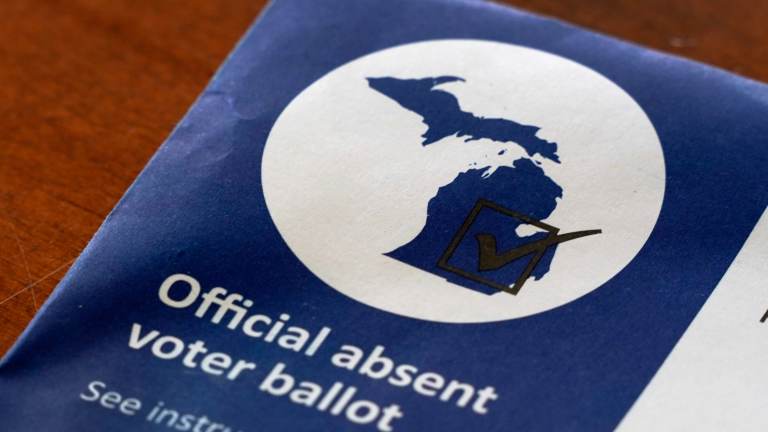
#NativeVote24: Indigenous candidates fight for seats in Arizona and across the country
Kadin Mills
ICT
WASHINGTON — So far in August, voters in Tennessee, Michigan and Washington have headed to the polls for their primary elections. Missouri has also held its election, but there are no Indigenous candidates in the state being tracked by ICT.
This month, 40 percent of Indigenous candidates running for public office have their primary election which comes to 71 candidates running across 9 states in August, according to a database managed by ICT and Advance Native Political Leadership. And late last month, the Arizona primaries saw the highest number of Indigenous candidates from any state for the 2024 election cycle.
In Tennessee, there was only one Indigenous candidate running for office. Incumbent Bryan Terry, Choctaw, ran unopposed in the Republican primary election for Tennessee House of Representatives in District 48. He will advance to the general election on Nov. 8. Terry first ran for election in 2014, and has held the seat since he took office in 2015.Michigan
Three Indigenous candidates are running for local office in the Great Lakes State. They did not participate in the state’s primaries and will advance to the general election.
In Mount Pleasant, Melissa Isaac, Saginaw Chippewa Tribe, is running for local school board. She discovered serious issues with election protocol which she says has disenfranchised Indigenous people living on the Isabella Indian Reservation, located in central Michigan, according to Michigan Public Radio and Native News Online.
There are also two candidates from the Lac Vieux Desert Band of Lake Superior Chippewa who are running for local office in Watersmeet Township, which is in Michigan’s Upper Peninsula. Both will be on the November ballot. A third candidate was disqualified for missing a filing deadline, according to the township clerk.
Former state Sen. Adam Hollier, Muscogee, was also disqualified from his bid for the U.S. House of Representatives due to what appeared to be forged signatures on his petition to appear on the ballot. Hollier failed to meet the requirement of 1,000 valid signatures. He served one term in the Michigan Senate, having been elected in 2018 and voted out of office in 2022.
Washington state had the most Indigenous candidates so far this month with six, including one local race.
Democrat Patrick DePoe, Makah, fell short of becoming the first Native American elected to a statewide office in the Pacific Northwest in the race for state Commissioner of Public Lands.
There were also three candidates running for seats in the state House, all campaigning as Democrats. The two incumbents, Debra Lekanoff, Tlingit, and Chris Stearns, Navajo, won their primaries in districts 40 and 47 respectively. Nate Tyler, Makah, was the non-incumbent. He lost his race for a seat in the state House representing district 24.
Bob Iyall, Nisqually, is another non-incumbent also running as a Democrat. He won 20 percent of the vote in the state’s nonpartisan primary, and will advance to the general election in his bid for state Senate. His opponent, state Rep. Jessica Bateman, won nearly 70 percent of the vote.
A number of Indigenous candidates moved on to the general election after primaries wrapping up at the end of July, including races in Utah and Arizona.
There are two Native American candidates running for office in Utah, according to the ICT and Advance Native Political Leadership database. Davina Smith, Diné, and Angela Romero, Assiniboine, are both running for seats in the Utah House of Representatives as Democrats.
Romero is the incumbent in her race to represent District 25, which includes a portion of southwest Salt Lake City. Smith is running for District 69, the southeast region of the state that includes Bears Ears National Monument, Bryce Canyon National Park, and part of the Navajo Nation. The Democratic primaries for both offices were scheduled for June 25, but were canceled. Both candidates will advance to the general election on Nov. 5.
In the Grand Canyon state, 24 Indigenous candidates ran for public office in the July 30 primaries. Of those, 18 won their primaries.
One candidate, Marie Acothley, Navajo, was running for two offices. She was unsuccessful in her run for Coconino County Board of Supervisors in the primary election. She is still running for a local school board seat, which is not part of the primary.
Acothley and seven other school board candidates will automatically advance to the general election. Additionally, Doreen Garlid, Diné, was elected to Tempe City Council in March and sworn in during July. There were also four candidates in Guadalupe who were elected this year.
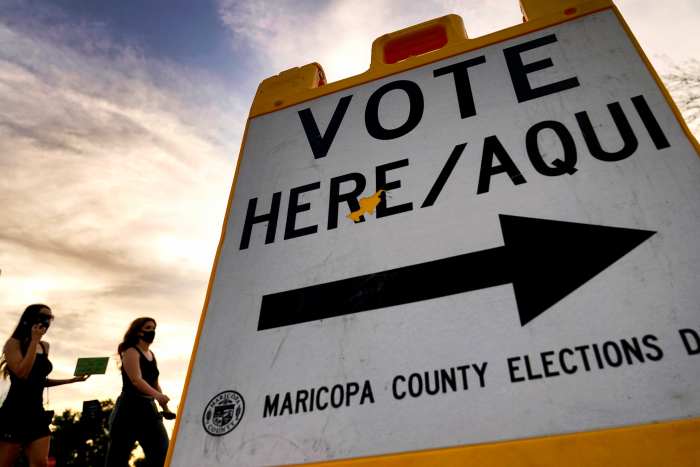
Voters deliver their ballots to a polling station in Tempe, Arizona, on Nov. 3, 2020. Experts say women could have a strong impact on the 2024 election. (AP Photo/Matt York, File)
There is one candidate running for federal office, Johnathan Nez, Diné. Nez is the former president of the Navajo Nation and he is running as a Democrat. He won his primary for the U.S. House of Representatives, where he hopes to serve Arizona’s second congressional district, the largest district in the state. District 2 encompasses 14 of the 22 federally recognized tribes in northeastern Arizona.
Read More
Former President Nez’s campaign platform focuses on strengthening infrastructure and addressing the rising cost of living by protecting benefits like Social Security and Medicare.
If Nez wins the general election, he would be the first Native American to represent Arizona in Congress.
When we look at the entire 2024 election cycle, 36 Indigenous candidates were on the ballot.
State Legislature
There were six Indigenous candidates running for Arizona legislature, including four for the House and two for the Senate. The only two non-incumbents were Brian Garcia, Pascua Yaqui, running for a seat in the state House for district 8, and Angela Maloney, Diné, running in district 6. Maloney lost her race to two incumbents, Mae Peshlakai and Myron Tsosie, who are both Diné.
Similarly, there were two incumbent state senators who each ran unopposed for reelection. Theresa Hatathlie, Diné, is running for Senate district 6. Hatathlie was appointed to her position in Jan. 2022 after former Democratic state Sen. Jamescita Mae Peshlakai resigned, moving to the Department of the Interior.
Incumbent Sally Ann Gonzales, Pascua Yaqui, also ran unopposed in the state Senate race for district 20. All six candidates ran as Democrats.
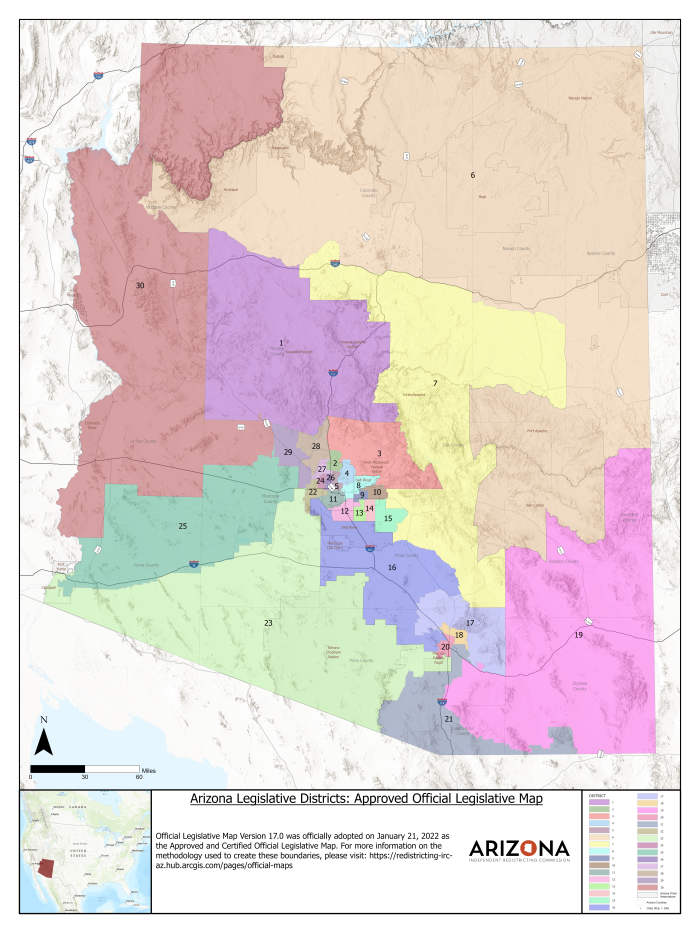
Arizona state legislative map depicting the state's 30 districts. (Courtesy of the Arizona Independent Redistricting Commission)
Local Government
A total of 30 Indigenous candidates are running for local office in Arizona this year. There were 17 Indigenous candidates running for local office in the primaries, and another five have already assumed office. One incumbent Thomasene Cardona, Yavapai-Apache and Acoma Pueblo, withdrew from her race and was not included in this count.
Only four candidates in the primaries were not incumbents, and all four lost their races. Incumbent Deborah Begay, Diné, also lost her seat as Maricopa County Justice of the Peace.
Incumbents who will advance to the general election from the primaries:
- Gabriella Cázares-Kelly, Tohono O’odham, Pima County Recorder
- Rodger Dahozy, Diné, Apache County Assessor
- Joe Shirley Jr., Diné, Apache County Board of Supervisors District 1
- Alton Joe Shepherd, Diné, Apache County Board of Supervisors District 2
- Joseph Dedman Jr., Diné, Apache County Sheriff
- Marleita Begay, Diné, Apache County Treasurer
- Judy Begay, Diné, Coconino County Board of Supervisors District 4
- Lena Fowler, Diné, Coconino County Board of Supervisors District 5
- Fern Benally, Diné, Navajo County Board of Supervisors District 1
- Alberto Peshlakai, Diné, Navajo County Board of Supervisors District 2
- Dawnafe Whitesinger, White Mountain Apache, Navajo County Board of Supervisors District 5
- Roberta "Birdie" Wilcox Cano, Diné and San Juan Pueblo, Mayor of Winslow
Eight other nonpartisan candidates who did not have primary races will advance to the general election:
- Marie Acothley, Navajo, Tuba City Unified School District #15
- Ronald Begay, Diné, Tuba City Unified School District #15
- Alicia Begolin, White Mountain Apache, Whiteriver Unified School District Governing Board
- Johnny Endfield, White Mountain Apache, Whiteriver Unified School District Governing Board
- Matthias Lupe, White Mountain Apache, Whiteriver Unified School District Governing Board
- Michael Tate, White Mountain Apache, Whiteriver Unified School District Governing Board
- Desiree Fowler, Diné, Page Unified School District Governing Board
- Renee Tsosie, Diné, Page Unified School District Governing Board
Several other states will also hold primary elections in August that will have broad implications for Indigenous peoples.
On Aug. 10, Hawai‘i will hold its primary election where the country will see the second highest number of Indigenous candidates running for office this year, behind Arizona. There are 21 Native Hawaiians running for offices in Hawai‘i, from city council to the state Senate and Office of Hawaiian Affairs.
On Tuesday, Aug. 13, voters in Minnesota, Vermont, Connecticut, and Wisconsin will cast their ballots, with voters in Florida and Wyoming following suit one week later on Aug. 20.
ICT is tracking eight Indigenous candidates and their races in Minnesota, as well as one in Wyoming.
Continue to visit ictnews.org for updates on these races.
The database is not complete and ICT encourages people to email political correspondent Pauly Denetclaw at pauly@ictnews.org and political reporting intern Kadin Mills at kadin@ictnews.org to add a past or current 2024 candidate to the database.
ICT is owned by IndiJ Public Media, a nonprofit news organization. Will you support our work? All of our content is free. There are no subscriptions or costs. And we have hired more Native journalists in the past year than any news organization ─ and with your help we will continue to grow and create career paths for our people. Support ICT for as little as $10. Sign up for ICT’s free newsletter.
